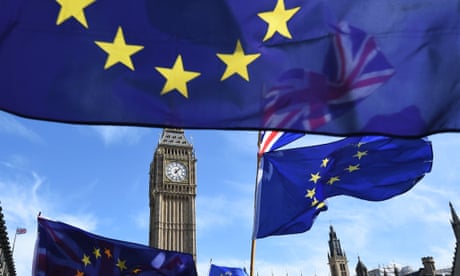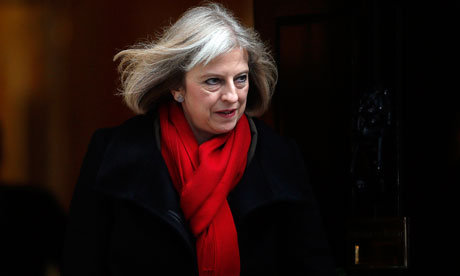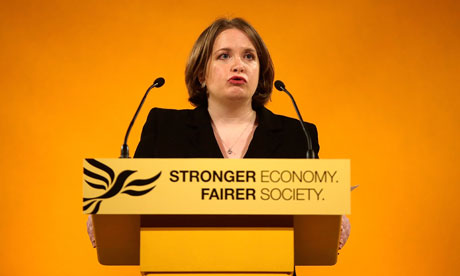'People will forgive you for being wrong, but they will never forgive you for being right - especially if events prove you right while proving them wrong.' Thomas Sowell
Search This Blog
Thursday, 10 August 2023
Monday, 12 June 2023
Saturday, 24 December 2022
Wednesday, 26 October 2022
Rishi Sunak’s first job? Clearing up his own mess
A clever man, with a penchant for bad ideas writes The Economist

Rishi sunak entered Downing Street clutching an invisible dustpan and broom. “Mistakes were made,” declared the new prime minister on October 25th, all but rolling up his sleeves. “I have been elected as leader of my party…to fix them.” The voice was passive but the identity of the culprit was clear—Liz Truss, Mr Sunak’s hapless predecessor, who managed just 49 days in the job. It is the morning after the night before in the Conservative Party. The grown-ups have returned to find the house has been trashed. Now Mr Sunak must start the clean-up.
There is just one problem with this narrative. Mr Sunak is a cause of the problem as well as the solution. The new prime minister is helping tidy up a mess that he helped create.
When the Conservative Party has erred in recent years, Mr Sunak has nearly always been in favour of the mistake rather than the fix. There were many reasons to support Britain leaving the eu. Mr Sunak, however, picked the worst one: he thought it was a cracking idea. Britain will be “freer, fairer and more prosperous outside,” wrote Mr Sunak in 2016. It was a pragmatic decision, not a romantic one. The fundamental problem at the heart of his own government will be a policy for which he long campaigned. Likewise, Mr Sunak was comfortable with a “no deal” Brexit so long as Britain actually left the eu. Mr Sunak has pledged a more constructive relationship with the bloc. Better not to have broken it at all.
After the referendum triggered three years of political deadlock, Mr Sunak supported an extraordinary solution to the mess: Boris Johnson. That decision can be put down to cynicism. Mr Johnson was likely to win regardless of whether he was endorsed by Mr Sunak, at the time a junior minister in the department for local government. But intellectual contortions were required to join the bandwagon. Theresa May was competent and diligent yet also a total failure, ran Mr Sunak’s logic, so it did not matter that Mr Johnson was neither competent nor diligent. In July Mr Sunak resigned from his position as chancellor of the exchequer, prompting a cascade of ministerial departures that ended Mr Johnson’s reign. But why put him in Downing Street in the first place?
Mr Sunak embodies the tension between the Tories’ lust for low taxes and their habit of making big-state promises. Colossal spending programmes during the pandemic made Mr Sunak briefly the most popular politician in the country. Yet these were also the decisions he most resented; he tried to curtail schemes such as furlough prematurely in a bid to save cash. In the spring of this year, Mr Sunak similarly dragged his feet on offering support for ballooning energy bills. He is, at heart, a small-state Conservative, even if he has showed a commendable ability to overcome his natural instincts when urgent need arises.
If fiscal conservatism comes first for Mr Sunak, what comes after is much more erratic. As an ambitious backbencher Mr Sunak supported low-tax “freeports”, which shuffle economic activity around rather than generating it. As chancellor Mr Sunak championed the “Eat Out to Help Out” scheme, when the government in effect paid unvaccinated people to sit together during a pandemic and infect each other. Mr Sunak pushed the Royal Mint to issue a non-fungible token this summer, just as the market for these digital assets crashed. Support for quixotic policy is the norm for Mr Sunak rather than the exception.
In politics, however, luck sometimes masquerades as judgment. Losing the leadership contest to Ms Truss this summer was a big stroke of fortune. During that campaign Mr Sunak predicted that Ms Truss would be a disaster, and she was. He warned that reckless spending commitments would force mortgage rates higher; his campaign team even put together a calculator, pointing out the high bills that would hit households if rates hit even 5%. Yet mortgage rates were heading up regardless of Ms Truss’s rash budget. Her errors have obscured the fact that, had Mr Sunak won in the summer, rising interest rates would have left him with tricky questions to answer. Instead he can pin it all on Ms Truss.
During the summer campaign, and throughout his time on the front benches, Mr Sunak has taken a path long followed by the Conservative Party, which has governed in its narrow political interest rather than the national one. Pledges to curtail onshore wind and solar development please a few zealots but make it harder for Britain to reach its climate goals. Slashing fuel duty as chancellor provided a few days of positive headlines, but failed to put much money in people’s pockets and did not help the environment. There is little evidence that Mr Sunak will take on the vested interests, often in his own party, that hold back Britain’s economy.
Standing on the shoulders of dwarves
The prime minister is a cut above most of his peers. But this is as much a function of a Conservative civil war that killed off competent colleagues as Mr Sunak’s own talents. Elected only in 2015, Mr Sunak has not been doing the job very long. Inexperience, even with copious intelligence, is always a problem. Yet the Conservative Party had nowhere else to turn. It would be comforting to think of Mr Sunak as a clever cynic, a gambler who bet big on Brexit and Mr Johnson and (with a helping hand from Ms Truss) became the youngest prime minister in two centuries. A more worrying analysis is that he is a bright and decent man with bad ideas.
On this reading Mr Sunak does not mark a change from the Tory policies that have left Britain in such a state. Rather he personifies them. The rot in the Conservative Party did not begin with Ms Truss. Britain’s departure from the eu, which Mr Sunak supported, is the thing that acts as a handbrake on the country’s economic prospects. Mr Johnson’s chaotic reign, which he also supported, caused even more ruin. It is the Conservative Party’s failure to take on its supporters that does so much damage to the country. Mr Sunak may be the only available man to fix the government’s errors. But he also helped make them.
Sunday, 21 November 2021
Monday, 29 March 2021
Saturday, 12 January 2019
Contrast between two parliaments - Why was the reservations bill not scrutinised?
The passage of the quota Bill highlights grave gaps in India’s parliamentary procedures writes M R Madhavan in The Hindu
Parliament ended the penultimate session of this Lok Sabha with both Houses passing the Constitution (124th Amendment) Bill, 2019, that enables 10% reservation in education and employment for economically weaker sections. The process by which this was done illustrates the collective failure of parliamentarians to review the government’s proposals and hold it to account.
Hasty steps
Let us review the sequence of events. On Monday (January 7), it was reported that the Cabinet had approved a Bill to provide reservation to poor candidates regardless of their caste, and that this would be introduced in the Lok Sabha on Tuesday, the last day of the winter session. News reports also suggested that the Rajya Sabha would extend its session by a day, so that this Bill could be discussed on Wednesday. There was no formal press release by the Press Information Bureau.
The rules of procedure of the Lok Sabha require every Bill to be circulated at least two days ahead of introduction. This is to give time for MPs to read the Bill and discuss it (or make objections) when the vote on the motion to introduce the Bill is taken up. This Bill was not circulated, even on Tuesday morning. At 11 a.m., when unstarred questions are tabled, one question concerned whether the government was “exploring the scope of providing reservation for poor candidates from forward communities for education and employment” and the details. The Ministry categorically denied that there was any such proposal under consideration. Then at 12.46 p.m., the Bill was introduced, with copies having been circulated to MPs a few minutes earlier.
The usual practice is to refer Bills to the respective standing committee of Parliament. This step allows MPs to solicit public feedback and interact with experts before forming their recommendations. In the case of this Constitution Amendment — clearly one with far-reaching implications — this scrutiny mechanism was bypassed.
The debate started around 5 p.m., just a few hours MPs had been given a copy. The debate ended around 10 p.m.
Meanwhile, the Rajya Sabha hardly functioned that day due to repeated disruptions. Finally, the chair adjourned the House till the next day — the first official indication that the sitting was extended by a day. The next day, Wednesday, the Rajya Sabha took up consideration of the Bill around 2 p.m. and ended the debate just past 10 p.m. A motion was moved by some members to refer the Bill to a select committee, but this motion was defeated by a wide margin, and the Bill was then passed.
Let us summarise the number of ways in which due oversight was skipped. The Bill was not circulated ahead of being introduced, it was not examined by a committee, there was hardly any time between its introduction and final discussion. Barring a few small parties, none of the larger Opposition parties asked for the Bill to be carefully considered by a parliamentary committee — even in the Rajya Sabha where they might have been able to muster the numbers to ensure this.
The British contrast
Contrast this with the incidents in the British Parliament the same day (Wednesday) when the Speaker ensured parliamentary supremacy over the government. A member of the ruling Conservative Party wanted to move an amendment to set a deadline for the Prime Minister to put forward new plans if she loses the Brexit vote next week. When the government objected that such amendments to set the business of the government in the House can be moved only by a Minister, the Speaker differed. He said that every member had a right to move an amendment. The motion was won by 308 votes to 297.
This case highlights three important ways in which the British Parliament works better than ours. First, the absence of an anti-defection law, so that each MP can vote her conscience. Note that the motion that put the government in a spot was moved by a former attorney general and a member of the ruling party. Second, it is known exactly how each MP voted. In India, most votes (other than Constitution Amendments that need a two-thirds majority to pass) are through voice votes — just 7% of other Bills had a recorded vote over the last 10 years. Third, the Speaker insisted on the supremacy of Parliament, and allowed a motion against the wishes of the government. Unlike in India, the independence of the Speaker is secured in the U.K. as no party contests against the Speaker in the next general election.
Parliament has a central role to secure the interest of citizens. It is the primary body of accountability that translates the wishes and aspirations of citizens into appropriate laws and policies.
Falling short
However, our Parliament often falls short of these goals due to some structural reasons. These include the anti-defection law (that restrains MPs from voting according to their conscience), lack of recorded voting as a norm (which reduces the accountability of the MP as voters don’t know which way they voted on each issue), party affiliation of the Speaker (making her dependent on the party leadership for re-election prospects), frequent bypassing of committees (just 25% of Bills have been referred to committees in this Lok Sabha), insufficient time and research support to examine Bills, and the lack of a calendar (Parliament is held at the convenience of the government). We need to address each of these issues to strengthen Parliament and protect our democracy.
Wednesday, 3 May 2017
You can’t just cut and run from Europe, Theresa May – it’s illegal
Leaders of Britain’s 27 EU partner countries have now thrown down the gauntlet: no discussions on a trade deal will take place until there’s progress on the UK’s divorce bill, the Ireland-UK border and the rights of EU citizens.
We are told there is a document on the table relating to UK citizens living in Europe and those of citizens from other EU countries who live in Britain, but the UK is not prepared to sign. No reason has been given as to why.

The problem for our prime minister is that at every turn her head hits the hard wall of law and the role of the European court of justice (ECJ). Theresa May has cornered herself by insisting that the UK withdraw totally from the court and its decisions. Nobody explained to her that if you have cross-border rights and contracts you have to have cross-border law and regulations. And if you have cross-border law you have to have supranational courts to deal with disputes.
Call it what you like, but in the end you need rules as to conduct, and arbiters for disagreement. Even the World Trade Organisation has a disputes court.
But May has had a bellyful of European courts after her run-in with the totally separate European court of human rights when, as home secretary, she was trying to deport the fundamentalist preacher Abu Qatada to Jordan. Jordan’s use of torture on political opponents proved a handicap to his expulsion. However, although all this related to a quite separate legal regime, the words Europe and court in the same sentence still invite obstinate opposition from May.
This is now a problem in the Brexit negotiations, because all the preliminary matters raised by EU leaders involve legal commitments from which we cannot walk away. Calls to cut and run without paying a penny in the Brexit settlement are unlawful and unethical. It is not surprising that the other 27 want to see the colour of our money up front.
There is talk of a special deal to be negotiated for Northern Ireland, whatever the rest of the UK does, by possibly joining the European Economic Area (EEA) with some additional border arrangements between Northern Ireland and the rest of the UK. EEA membership is a semidetached position that Norway, Iceland and Liechtenstein have signed up to, whereby they have the benefits of the EU single market but not the full obligations. However, it also has legal implications. You cannot trade without the protection of law because things can go wrong. EEA members have to sign up to the European Free Trade Association court, a special supranational judicial body which deals with EEA disputes; it sits in Luxembourg, and is run largely according to EU law and ECJ judgments. Of course, such law is made without the input of EEA states, which makes it a solution that would be hard for many Brexiteers to swallow.
In preparation for the negotiations, EU representatives have been appearing before Lords and Commons committees and meeting Brexit ministers. They are invariably bemused. They say they keep being told the UK wants to continue to be part of various arrangements, including the European arrest warrant and Europol – yet nobody in London seems to understand that such collaboration requires the ECJ to have ultimate jurisdiction and for EU law to apply.
It seems obvious to them that cross-border collaboration requires supranational legal arrangements covering everything from financial services, trade, farming, fishing, security, environment, employment and maternity rights to industry standards and consumer rights. Intellectual property law, for instance, covers a huge array of research, entrepreneurship, invention and creativity; the European patent court has only recently been built here in London and was due to be opened. What happens to it now, they ask.
For years the British public have been subjected to a barrage of tabloid mendacity suggesting that we are victims of an onslaught of foreign-invented law and interference by foreign courts. In fact, a vast amount of incredibly advantageous law has been created in the EU in the past 40 years. And here’s the rub: we have been major contributors to that law. The British are good at law. We have had a strong hand in the creation of EU law.
The committee I chair in the House of Lords has heard overwhelming evidence about the benefits to business of being able, for instance, to secure a judgment in a British court against a recalcitrant debtor in Poland and know it will be enforced anywhere in the EU.
A mother can secure a maintenance order against her children’s renegade father who has sloped off to continental Europe, and have the order enforced. A holiday accident in Spain can lead to swifter resolution and compensation by virtue of EU law. A British father can get access to his kids by order of a court in Munich. Cross-border relationships require cross-border law, and agreements on mutual enforcement are fundamental.
No wonder the European commission president, Jean-Claude Juncker, is reported to have said Theresa May is on another galaxy in imagining she can retain the best bits of Europe without its institutions or legal underpinnings. Her fantasy that the “great repeal bill” will fix the problem by bringing EU law home, or that a deal can be done without the need for any European court, is unravelling. These legal arrangements require reciprocity. The courts of EU countries do things for us because we do likewise for them. A piece of unilateral legislation on our part does not secure that mutuality which is embodied in many regulations.
Harmonising law across Europe has raised standards – to our advantage. Europe-wide law is integrated into our lives. In the “new order” of trade agreements with China and others, none of these safeguards will exist. My guess is that if May does secure a deal with the EU, we will find ourselves quietly signing up to a newly created court or tribunal, a lesser ECJ.
The law, judges and courts are under attack in many democracies – from Trump’s America to Poland, Hungary and Turkey. It is the currency of our dangerous times. Be warned: good law is a protection we have to preserve. The price of its loss will be very high indeed.
Monday, 19 August 2013
Secret courts: justice conducted behind closed doors is no justice at all

Tuesday, 12 March 2013
The justice and security bill will have a corrosive impact on individual rights.
I'm leaving the Liberal Democrats too

Sunday, 1 July 2012
New-tech moguls: the modern robber barons?



